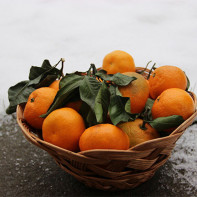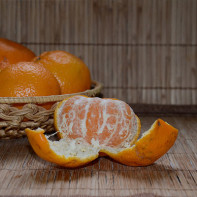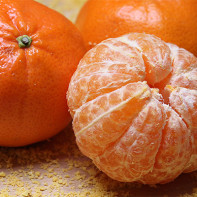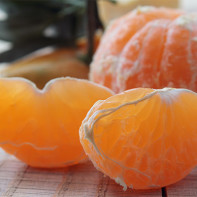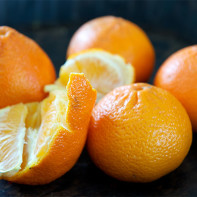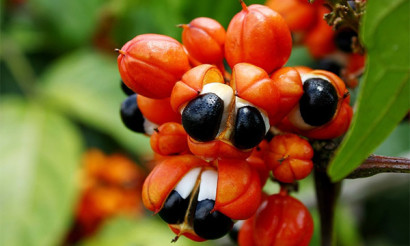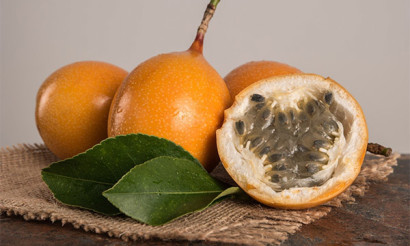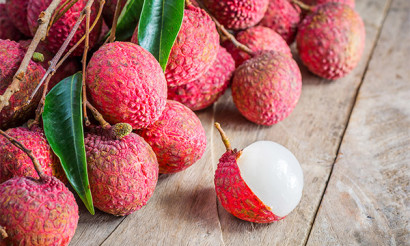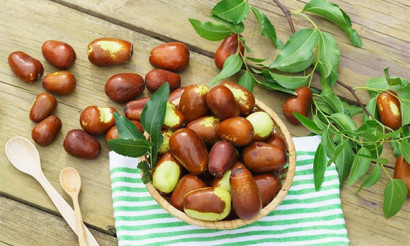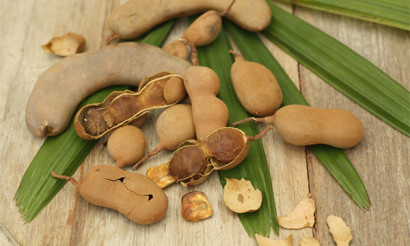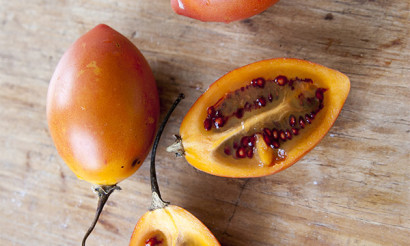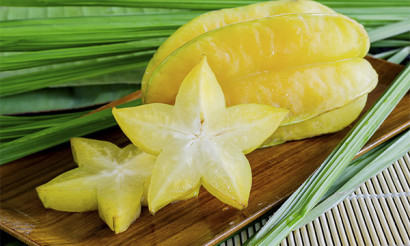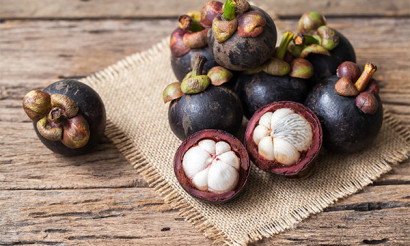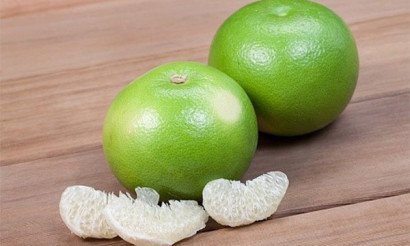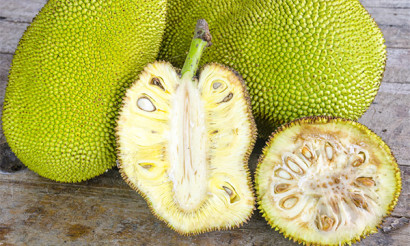Tangerines: types, varieties, beneficial properties and contraindications
Tangerines are favorite fruits of many children and adults. They have become an invariable attribute of the New Year table and can be eaten alone or used for cooking fresh fruits and a variety of dishes. And every other person knows that tangerines are good for health. However, in most cases, this knowledge is limited to only one fact - the beneficial effect of the fruit on the human immune system. About what other useful and therapeutic properties tangerines have, as well as their other features you will learn from this article.
- Where do tangerines grow
- Types
- What's the difference between a Tangerine and an Orange
- What's the difference between clementines and mandarins
- Healthier: Tangerine or orange
- Composition and Calories
- What are the Benefits of Tangerines
- General Benefits
- For Women
- For Men
- Pregnancy
- Breastfeeding
- For Children
- Tangerine Peels: Benefits and Harms
- The Benefits of Tangerine Peels
- Tangerine essential oil: properties and application
- The benefits and harms of dried tangerines
- Tangerine Juice Benefits
- Can I Eat Tangerines to Lose Weight
- Tangerines in Medicine
- Diabetes
- For Pancreatitis
- Gastritis
- For the Intestines
- For constipation
- For gout
- For the liver
- For hemorrhoids
- For cholecystitis
- Recipes of folk medicine based on tangerines
- Tangerines in cosmetology
- For Face
- For Hair
- Harm and Contraindications
- Tangerine Allergy Symptoms
- How to choose and store tangerines
- Can be frozen.
- How to Eat Tangerines Properly
- How much can be eaten per day?
- Can I Eat at Night and on an empty stomach?
- Can I Eat the Peel?
- Can I Eat Tangerine Beans?
- What can be made with tangerines: Recipes
- Jam
- Compote
- Smoothie
- Juice
- Wine
- Candied fruits
- Can I Give Tangerines to Animals
- Interesting Facts about Tangerines
Where do tangerines grow?
The natural habitat of the tangerine is considered to be the Cochinchin, the southern territories of modern China and Vietnam. In these lands, the orange fruit has grown for many thousands of years and is considered one of the symbols of the nobility. It was from these countries that the mandarin spread throughout the world.
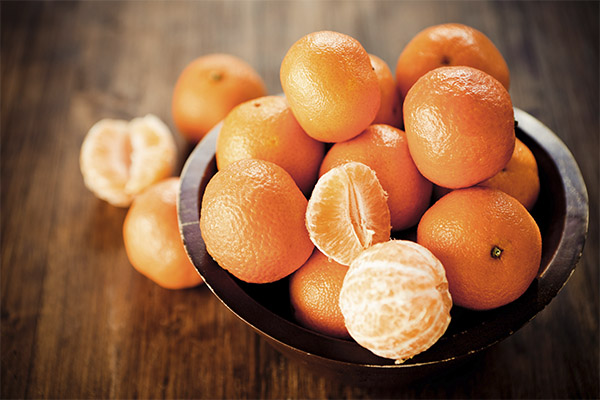
In the early 19th century the fruit was introduced to Europe. Europeans first tried to grow the mandarin in the lands of the Mediterranean. The plant responded well to the warm climate of the area and is still growing today.
At the end of the 19th century, mandarin seedlings made their way to the United States. The crop grew well in the territories of Florida, New Orleans, Georgia, California, and Texas, where it is still grown on an industrial scale today.
But Europeans and Americans were not the only ones who were able to grow this capricious plant. It successfully grows and bears fruit in:
- Spain;
- Italy;
- Algeria;
- Egypt;
- Morocco;
- Philippines;
- India;
- Japan;
- Roots;
- Turkey;
- Mexico;
- Guatemala;
- Brazil;
- Abkhazia.
In the cities of Latin America mandarins are not so common. However, in small quantities this fruit is grown on its territory as well.
The plant has also been successfully cultivated in Russia. Small plantations of mandarins can be found in Krasnodar Krai and in the North Caucasus. Of course, we cannot speak about industrial cultivation in this case, but there are already some successes.
Types
Specialists divide all tangerines into 3 main groups:
- Heat-loving, noble. Such fruits are characterized by the presence of a rich, orange color of the rind, knobby surface and large green leaves.
- Heat-loving, small-leafed. Varieties in this group are distinguished by their elongated fruit shape, red-orange skin, and the presence of a bright, pungent flavor.
- Japanese varieties. The main distinguishing feature of varieties belonging to this group is the absence of seeds. Leaves of such plants are rather large in size and fruits have regular, rounded shape and yellow-orange rind.
Mandarins have received close attention of many breeders, resulting in the emergence of hybrid species:
Abkhazian Mandarins
This hybrid variety has gained enormous popularity, which was made possible by the appearance, size and taste characteristics of the fruits. The fruits of this hybrid have a rounded shape and are colored in a bright shade of yellow. The taste of mature Abkhazian tangerines is richly sweet, with a touch of subtle acidity.
Red
They can be called a separate group, as a large number of hybrid varieties, including the hybrid Mineola, Clementine, Tangora and Ellendale, belong to them.
- The Mineola hybrid variety was obtained by crossing tangerine with grapefruit. It is distinguished by its pear shape and red-orange rind color.
- Clementine is a hybrid of mandarin and orange. Its fruits are not large in size. They are small, round and even slightly flattened. Its peel is orange with a distinctive red tint.
- The fruits of the hybrid variety Tangora bear a direct resemblance to clementine. The only distinguishing characteristic of fruits is their size. Tangor mandarins are quite large, which cannot be said about clementines.
- Ellendale mandarins can be either large or medium sized. They differ in taste characteristics, have orange-red rind and were obtained by crossing three fruits - mandarin, tangerine and orange.
Yellow .
These are represented by Turkish, Chinese, Israeli and Moroccan hybrid varieties. In addition, hybrids such as Honey, Yuatangas, and Dancy belong to this group.
- The Turkish hybrid varieties are characterized by a thin rind colored in bright, light shades of yellow or orange. Their taste will not be appreciated by everyone, as the fruits are slightly sour and bland. Despite this, the variety does not lose its popularity and is grown in large quantities.
- The main distinguishing feature of Moroccan mandarins is their golden rind. It is easily separated from the pulp, which in turn will surprise you with its sweetness and lack of seeds.
- Chinese hybrids have sour-sweet fruits, with a yellow rind. At the same time the sourness in fruits is not expressed, and their taste is very pleasant.
Israeli
The yellow-orange Israeli mandarins are characterized by their sweetness and contain a minimal amount of seeds.
Green or Filipino
These hybrids have a green skin color and a surface covered with small tubercles. The flesh of these tangerines has a familiar orange color and an excellent sweet taste without any pronounced sourness.
Citrofortunella .
This hybrid is a cross between fortunella and a major tangerine. The result is an attractive plant that does not exceed 1.5 meters in height. Its fruit is small in size, has a bright orange skin and a tangy, bitter taste. Because of its taste characteristics, this plant is most often grown for ornamental purposes only.
Japanese
They can be grown in apartment conditions, which is possible due to their small size. The height of a dwarf mandarin does not exceed the 2 meter mark. At the same time, the fruits of such plants can be consumed as food due to their excellent sweet taste.
What's the difference between a mandarin and an orange?
The mandarin's closest cousin is the orange. These two fruits are similar not only in the color of their peels but also in their taste. However, they have significantly more distinguishing characteristics:
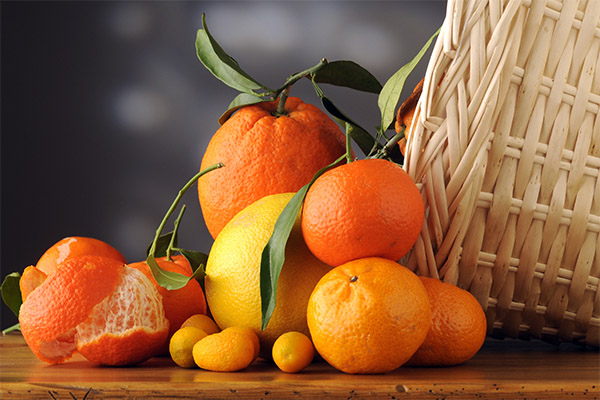
- Growing. The tangerine bush does not reach too large a size. The maximum height of this plant is 4 meters, while oranges grow on tall trees.
- Fruiting. Oranges enjoy their fruits throughout the year, while mandarins appear on the branches of the plant only in the fall and ripen within a few months.
- Size. The main distinguishing characteristic of these fruits is their size. An orange can be several times the size of a mandarin.
- Density of the peel. Orange peels are much denser than tangerine peels. It is difficult to peel without a knife.
- Use of the peel. Orange peels can be used to make delicious jams, jams, and even butter, while mandarin peels make a great base for medicinal infusions, syrups, and extracts.
- Number and size of slices. The size of orange slices is larger. In addition, the process of dividing them is more complicated.
- Composition. Orange surpasses tangerine in the content of useful substances. It contains twice as much ascorbic acid.
- Taste characteristics. The tangerine has more sugars, indicating the sweetness of the fruit. An orange, on the other hand, is less sweet and has a pronounced sourness and a slight aftertaste of bitterness.
How do clementines differ from mandarins?
It is quite easy to distinguish an orange from a tangerine, which cannot be said about a clementine. In order not to make a mistake and buy a tangerine, pay attention to the following characteristics:
- The shape of the fruit. The clementine has a regular rounded shape, while the tangerine is more flattened.
- Skin density. The peel of a mandarin is softer and looser when compared to that of a clementine. In addition, the surface of the mandarin is covered with large pores.
- Color. The clementine has a richer color, while the mandarin is a bit lighter.
What is healthier: mandarin or orange?
The beneficial properties of citrus fruits are known to many. Their fruits contain a large number of vitamins and minerals, which are necessary for the normalization of many internal organs and systems, can speed up the recovery during colds and improve the overall health of man. However, when we talk about what is healthier - orange or mandarin, many people find it difficult to answer this question. Let's try to figure it out.
For example, during colds, the benefits of the tangerine is not as high as many people think. It contains less vitamin A, B and C than an orange. It is for this reason, during the treatment of colds, orange will be more useful than tangerine. But the substances that are necessary for the normal functioning of the heart and liver are contained in the tangerine in large quantities. Therefore, when treating these organs, physicians recommend to diversify the daily diet with this fruit.
The composition of the tangerine will be more useful than the orange in the treatment of diseases such as bronchitis and other pathologies of the respiratory system. This is easily explained by the fact that the composition of these fruits contains a large amount of seniphrine, which accelerates the liquefaction and removal of mucus accumulated in the lungs and bronchi and relieves edema.
It is worth noting the fact that the chemical composition of tangerine is saturated with a lot of sugars, the consumption of which is extremely undesirable in a number of diseases. But the allergic reactions, according to statistics, it causes much less, which is of great importance for people suffering from various forms of allergies.
Based on all these facts, we can say that both fruits can have a beneficial effect on the human body, and about which of them will be more useful, you can judge only in each case.
Composition and calories
The chemical composition of tangerines contains a large number of useful substances. In 100 g of this fruit is present:
- 0.8 g vegetable protein;
- 10.6 g of sugar;
- 0.3 g fat;
- 1.8 g of fiber;
- 13.3 g carbohydrates.
This representative of citrus fruits is a source of fat-soluble and water-soluble vitamins. 100 g of tangerines contains:
- 34 µg of vitamin A;
- 155 µg beta-carotene;
- 0.2 mg of vitamin E;
- 101 µg alpha-carotene;
- 26.7 mg of ascorbic acid;
- 0.4 mg of vitamin B3;
- 0.2 mg of vitamin B5;
- 10.2 mg of vitamin B4;
- 0.1 mg of vitamin B6;
- 16 µg of vitamin B9.
The chemical composition of this fruit is also saturated with a large number of micro- and macronutrients. A 100 g of tangerines contains:
- 37 mg of calcium (3.7% of the daily allowance);
- 0.1 mcg of selenium (0.2% of the daily allowance);
- 0.2 mg of iron (1.5% of the daily allowance);
- 0.1 mg zinc (0.6% of daily allowance);
- 12 mg magnesium (3% of the daily allowance);
- 2 mg sodium (0.2% of the daily allowance);
- 20 mg of phosphorus (2.9% of the daily allowance);
- 166 mg of potassium (3.5% of the daily allowance).
Like many other fruits, the tangerine is considered a low-calorie product. In 100 g - only 53 calories.
What are the benefits of tangerines
General benefits
The regular consumption of tangerines will improve the work of the whole body because of the large amount of vitamins and minerals they contain:
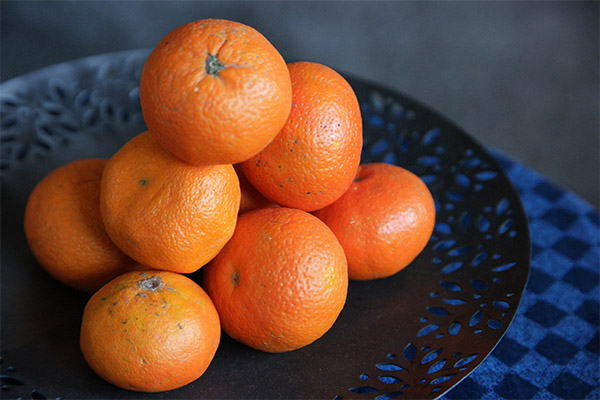
- Normalize metabolic processes. Mandarins contain substances that stimulate the expression of genes responsible for the metabolic processes that occur in the human body.
- Prevent the accumulation of fat cells in the liver. Nobiletin, which is found in this citrus, prevents fat from accumulating in the liver.
- Normalize natural insulin production. This feature of tangerines helps prevent the development of type 2 diabetes.
- Improve the function of the cardiovascular system. Potassium, which is part of tangerines, beneficial to the cardiovascular system, preventing the development of common diseases.
- Normalize the work of the intestines. Regular consumption of tangerines helps to saturate the human body with pectin, the lack of which will lead to the development of intestinal diseases and disorders of its work.
- Strengthen bone tissues, teeth and nails. Phosphorus and calcium contained in tangerines are necessary for the health of teeth, nails and bones.
- Normalize the work of the central nervous system. Mandarins contain magnesium, which has a beneficial effect on the CNS, which helps to cope with depression and increase resistance to a variety of stresses.
- Improve the immune system. Regular consumption of this citrus increases the body's resistance to viruses that attack it, which helps prevent the development of colds and other diseases.
And, also, the tangerine can significantly reduce the risk of heart attack and stroke, prevent the development of atherosclerosis, remove harmful cholesterol from the body.
For women
It is difficult to overestimate the benefits of tangerines for the female body. They will become the best assistant for those representatives of the beautiful half of humanity, who seek to get rid of extra pounds. The fact that the composition of this citrus is the minimum number of calories and substances that accelerate metabolism, which contributes to reducing the total body weight.
In addition, the regular use of mandarins women notice the normalization of the psycho-emotional state during the premenstrual period, increasing the resistance to stress and getting rid of frequent depressions.
It is also worth mentioning that this citrus fruit is included in many cosmetics. This suggests that it can have a beneficial effect on the condition of the skin, improving its appearance and keeping a woman's attractiveness for many years.
For Men
This citrus is also useful for men. With systematic consumption it will help:
- Improve the function of the prostate gland. Vitamin C in combination with micronutrients and citric acid, which are part of the tangerine, is able to normalize the work of the prostate gland, preventing the development of dangerous diseases.
- Normalize the level of acidity of the ejaculate. Ascorbic acid, citric acid, phosphorus and other minerals can maintain the level of acidity in the ejaculate.
- Neutralize the negative effects of toxins. This feature is especially important for men who smoke.
- Prevent the development of avitaminosis. Lack of vitamins leads to decreased physical activity and deterioration of general well-being, which is especially undesirable for working men.
In pregnancy.
The useful substances contained in this citrus can have a beneficial effect not only on the mother's body, but also on the fetus, ensuring the proper formation of its internal organs.
With the regular consumption of tangerines, a pregnant woman will not face such problems as:
- placenta detachment;
- frequent colds;
- low hemoglobin levels caused by poor iron absorption;
- varicose veins;
- formation of a large number of stretch marks;
- Depressive and hysterical states caused by hormonal restructuring;
- severe toxicosis;
- swelling of the extremities;
- tooth deterioration;
- frequent constipation.
In addition, the regular intake of vitamins, macro and microelements contained in this citrus in the body of the future mother will prevent the development of congenital diseases in the baby and ensure the proper formation of its bone tissues.
When breastfeeding
Pediatricians do not recommend introducing mandarins into the daily diet of a woman who breastfeeds until the baby is five months old. The fruit should be introduced to the menu very carefully, as it can provoke the development of acute allergic reactions in the newborn child.
With normal tolerance of the product, the benefits from the consumption of tangerines will be very great. This fruit will help:
- Recharge energy and cheer up, which is especially important for a young mother.
- Improve the immune system of mom and baby.
- Cope with colds without the use of medications.
- To improve the psycho-emotional state of a young mother and prevent the development of postpartum depression or cope with its manifestations.
- Prevent the development of avitaminosis.
- Remove accumulations of harmful cholesterol.
The main condition for the consumption of this fruit during lactation is the strict observance of doses. Otherwise, tangerines will cause the development of serious diseases in the newborn baby.
For children
It is useful to consume these citrus fruits for children as well:
- Vitamin D, which is contained in the tangerine, can prevent the development of rickets and even accelerate the treatment of this disease.
- All citrus fruits, including tangerine, contain essential oils that can saturate children's bodies with energy and increase physical activity of the child. This feature is especially relevant for school-age children.
- As you know, tangerine contains ascorbic acid, which, in turn, can improve the immune system.
- Fiber will help to adjust the digestive processes.
- Parents of young children often face the problem of poor appetite. It can be solved by introducing a small amount of citrus into a child's daily diet.
Despite the many useful properties, tangerines should be introduced to children's diets very carefully. Pediatricians do not recommend this until the child is a year old. In this case, at the first introduction of this fruit should monitor the reaction of the child's body. In the case of even minor symptoms of allergy from the consumption of tangerines should be abandoned and consult a pediatrician.
Tangerine peels: benefits and harms
Mandarin peels can be no less useful. Its chemical composition contains a large amount of essential oils and other useful substances, which allows you to use it for the treatment and prevention of many diseases:
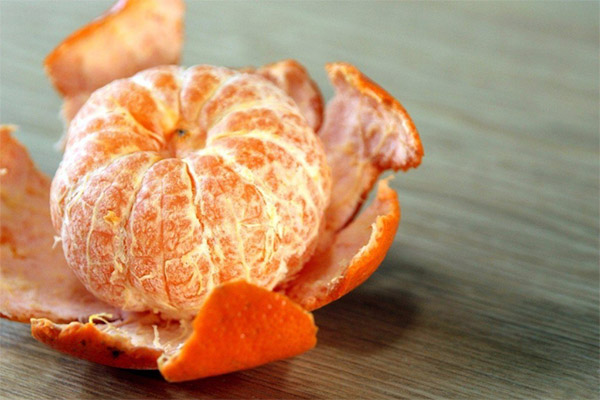
- Cancer. To prevent the development of cancer, you should regularly drink tea with dried tangerine peel.
- Diabetes mellitus. Decoction of pre-dried mandarin peels will help reduce blood sugar levels.
- Low immunity. Regular use of compositions prepared on the basis of tangerine peels will help to prevent the occurrence of diseases caused by pathogens, including viruses and bacteria.
- Disorders of the digestive system. Tea with dried tangerine peels will help cope with digestive disorders, relieving bouts of nausea and vomiting.
- Nervous Stress. The oils found in mandarin peels help relax and relieve nervous tension.
- Colds. Compositions with tangerine peels will speed recovery during colds.
- Ulcers. One of the effective preventive means to prevent the development of ulcers is a decoction of tangerine peels.
- Nail fungus. Rub the nail plates with tangerine peel. It will not only help to get rid of fungal diseases, but also improve the appearance of the nail.
Tangerine peel will also help to cope with such problems as acne and black spots. Remove these defects will help masks, tonics and scrubs, the basis of which is a citrus peel.
However, despite the many useful properties, compositions with tangerine peel and can harm your health. This is possible in the case of refusal to comply with a number of contraindications. It is not worth applying such remedies if a person suffers from:
- from allergic reactions;
- ulcers;
- pancreatitis;
- colitis;
- Increased level of acidity in the stomach.
In other cases, compositions with tangerine peels can have a positive effect on health.
The benefits of tangerine kernels
Not everyone knows that the useful properties have not only the pulp or juice of citrus fruits, but also their seeds. The rich composition of tangerine seeds allows their use in many areas, including perfumery, cosmetology, cooking and medicine.
When used systematically, tangerine seeds can have an amazing effect on the human body:
- Detoxify and remove from the body a large number of free radicals, the presence of which can be a trigger for the development of dangerous diseases.
- Prevent the development and completely cure the early stages of cancer, which is possible thanks to the polyphenol content in the seeds.
- Improve the cardiovascular system, preventing spikes in blood pressure and preventing the development of diseases such as atherosclerosis, ischemia, heart attack and stroke.
- Preserve the health and beauty of the skin, stopping premature aging processes, preventing the appearance of acne and hair loss.
- Prevent the development of central nervous system disorders, including depression or apathetic states.
Tangerine seeds can have a beneficial effect on the body, but only if used correctly, without neglecting the dosages and recommendations of specialists.
Mandarin essential oil: properties and uses
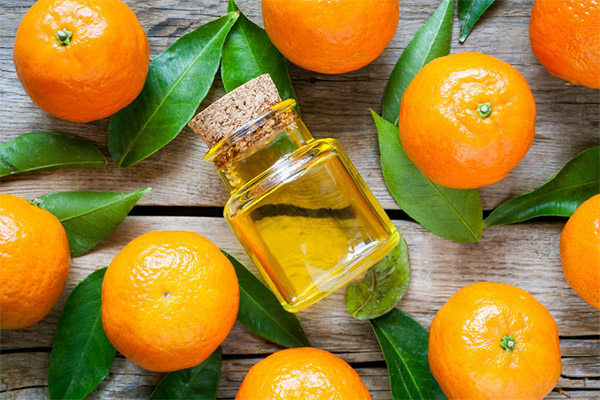
Mandarin essential oil is made by processing and pressing the peel, which explains its rich composition. The useful properties of mandarin essential oil include its ability to:
- Improve digestive functions;
- Prevent the development of liver diseases;
- Relieve symptoms of intestinal disorders;
- increase appetite;
- Improve the immune system;
- cope with sleep disorders, including insomnia;
- Relieve psycho-emotional stress;
- prevent and relieve inflammation of the mucous membranes of the mouth and gums.
One of the amazing features of this essential oil is that it can be used to treat children and pregnant women. This is possible because of its mild effect on the body.
Due to its unique composition, mandarin essential oil is used in many areas, including:
- As an aromatherapy remedy. To relieve nervous tension and cold symptoms, add this oil in a lamp and inhale its vapors for 20-30 minutes. After a specified time you will feel several times better.
- In cosmetology. Mandarin essence is part of skin care cosmetics, the purpose of which is to protect the skin from the external environment, to get rid of cellulite, to treat age spots and to eliminate acne.
- In cooking. This essence is widely used as a natural flavoring, which allows adding it to a variety of drinks, baked goods and homemade candies.
Before using mandarin essential oil, make sure you are not allergic to the product. Apply 1-2 drops of the essential oil on the inner side of your elbow bend and leave it for a while. If a rash, redness or itching appears after 5-10 minutes at the site of application of the essential oil, refuse to use it.
The benefits and harms of dried tangerines
Dried tangerines can become not only a favorite but also a useful treat. Thanks to the substances that are included, they are consumed:
- To improve intestinal peristalsis;
- normalize the work of the gastrointestinal tract;
- increase appetite;
- improve metabolism;
- increase immunity;
- strengthening of the walls of blood vessels;
- Treatment and prevention of atherosclerosis;
- cleansing the body of toxins;
- normalization of the liver;
- Avitaminosis treatment;
- Scurvy prevention;
- treatment of fungal diseases.
Despite their many health benefits, dried tangerines can be detrimental to human health. Medics strongly recommend that those patients who suffer from:
- Of serious disorders in the work of the kidneys;
- high blood sugar levels;
- obesity.
The contraindication to the use of dried fruit is also an individual intolerance of one of the components.
It is worth paying attention to the fact that the consumption of large quantities of dried fruits and any other citrus fruits can have adverse effects on pregnant women and young children.
The benefits of tangerine juice
Tangerine juice contains the same amount of vitamins, macro-and micronutrients as the citrus itself. Based on this, we can confidently say that this drink is able to have a beneficial effect on the health of the entire body, improving the functioning of internal organs and systems.
Regular consumption of tangerine juice will help:
- Prevent the development of acute respiratory diseases and deal with them when the first symptoms appear.
- Accelerate the healing process during illnesses such as bronchitis, in conjunction with medication.
- Improve appetite by stimulating the production of gastric juice.
- Combat helminths.
- Prevent the development of depression.
Thanks to the antimicrobial components that are part of this drink, it can be used as one of the components of care and treatment cosmetics for nails, hair and skin.
Can we eat mandarins to lose weight?
Not so long ago, researchers found out that tangerines can also help in the fight against excess weight. With the regular consumption of these fruits and their derivatives, extra pounds go away much faster.
However, losing weight with the help of any tangerine diet is unlikely to work. They will only be effective as a supplement to regular exercise.
Tangerines in medicine
The fact that tangerines have a positive effect on human health is said not only by experts in folk medicine, but also by qualified physicians. Therapists advise to include these citrus fruits in the daily diet not only for children, but also for adults. Regular consumption of these fruits will saturate the body with vitamin C, improve the immune system, prevent the development of avitaminosis and help to cope with the manifestations of dangerous diseases.
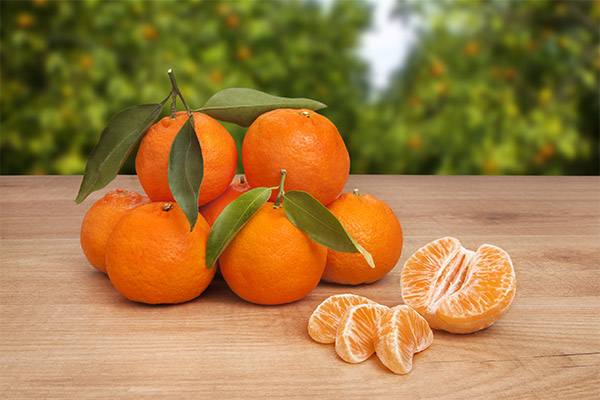
Diabetes mellitus
For example, physicians recommend consuming tangerines to those patients who suffer from diabetes mellitus of any type. Regular consumption of these fruits will not only lower the patient's blood sugar levels, but also:
- will normalize blood pressure;
- Maintain body tone;
- Will prevent a sharp increase in sugar;
- will be able to remove toxins and impurities;
- increase the body's resistance to viruses that attack it;
- Will prevent gaining a lot of extra weight;
- Stop the formation of atherosclerotic plaques.
Important: The glycemic index of tangerines is 40-49 units (depending on the variety)
For pancreatitis.
But with pancreatitis, this fruit is strictly forbidden. Its consumption will provoke the intensification of symptoms and can become a trigger for the development of the disease, which is explained by its content of large amounts of acid, which, in turn, is an irritant to the internal mucous membranes.
The ban may be lifted only by a doctor during a sustained remission. In this case, the permissible quantity of tangerines will be minimal.
In case of gastritis
Medics recommend to give up this fruit and at exacerbation of chronic gastritis. Otherwise, the risk of undesirable symptoms increases. This can be attacks of nausea and vomiting, sharp pain localized in the abdomen.
As for the period of remission of the disease - at this time, you will not have to give up your favorite treat.
For the intestines
Tangerines are an excellent remedy for the prevention of GI diseases, including the intestines. However, medics note that you can consume them only if the organ is healthy. If the patient has a history of serious intestinal diseases, the consumption of tangerines should be limited.
With constipation
Medics often advise to diversify the daily diet with this small citrus to those patients who suffer from frequent constipation. Fiber, which is included in its composition, will help eliminate this unpleasant problem and normalize bowel function.
For Gout
Tangerines are not a product that can have a preventive or curative effect on this disease, but they will not worsen the patient's condition either. On the contrary, the substances that they contain can prevent the development of related diseases, which prompts doctors to recommend their patients to include them in the daily diet.
For the liver
According to medics, the regular consumption of tangerines restores liver cells. In addition, this fruit promotes the removal from the liver of toxins and impurities that have been accumulated over many years. It is for this reason that many therapists advise patients suffering from diseases of this organ to include mandarins in any form in the daily menu.
For hemorrhoids
The complex treatment of hemorrhoids includes a special diet, during the observance of which it is not recommended to exclude mandarins from the daily diet. In combination with other products, they will have a beneficial effect on bowel function, facilitate the process of defecation and prevent the formation of new fissures.
In cholecystitis
But with cholelithiasis, it is worth refraining from the consumption of citrus fruits completely. Otherwise, there is a risk of worsening the general condition and the development of the disease.
The recipes of traditional medicine based on mandarins
According to experts of folk medicine, mandarins and their derivatives can cope with the treatment of many diseases on their own.
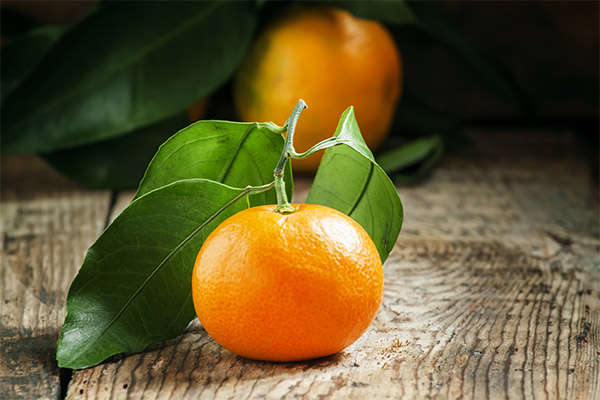
- So, for example, to treat helminth infections, doctors advise to drink 200 ml of tangerine juice for 3 days. In this case, you should drink it 60 minutes before a meal at the same time.
- For a cough or severe sore throat, use a decoction made from 10 crushed mandarin peels and 200 ml of hot water. Put the specified amount of crushed peels in a container suitable for boiling, pour the specified amount of water and boil over a low heat for 7 minutes. After boiling, cover the broth with a lid and let it infuse for 60 minutes. After the specified time, strain the decoction and drink 20 ml 4 times a day.
- Get rid of flatulence will help dried mandarin peel. Grind it in any convenient way and take half a teaspoon 5-7 minutes before a meal.
- An infusion of 20 grams of chopped mandarin peel and 200 ml of boiling water will help to reduce blood sugar levels. Mix the ingredients in a thermos of suitable volume and insist at least 60 minutes. Take the infusion in strained form, 10 ml 30 minutes before a meal.
- One of the most effective remedies for improving immunity on the basis of tangerines is a tincture of 20 grams of tangerine peel and 200 ml of vodka. You can also use a tincture of a tangerine, a tantalum or a tantalus. Soak the tincture in a dark place for 10 days, then take 20 drops twice a day.
Doctors draw the attention of their patients that you can use folk remedies only after consulting with your doctor.
Tangerines in cosmetology
Due to their unique properties, tangerines and their derivatives are widely used for the preparation of home care cosmetics. The products based on this citrus will help maintain youthfulness and attractiveness of the skin, as well as returning the hair lost its shine and healthy appearance.
For the face
There are a large number of face masks, the basis of which is the mandarin, but the most effective means are the following.
- A whitening mask. Mash one small tangerine, add to the resulting pulp 5 drops of lemon juice, 20 ml of sour milk and mix thoroughly. Place the resulting mixture on a small piece of natural cloth or gauze, folded in several layers, and apply to the face. Rinse off the mask after 40 minutes, with cool water.
- Nourishing mask. Mashed potato one ripe tangerine with 5 ml of honey, the same amount of milk cream and mix well. Apply the mixture to clean skin and leave for no more than 20 minutes. After the specified time, wash off the mask with water at a comfortable temperature, without using any cleansers.
- Rejuvenating mask. Mix 10 ml of liquid acacia honey, 20 g of cosmetic clay (any kind will do, you can buy it at a drugstore or any cosmetic store), the juice squeezed from a mandarin, and 3 drops of tea tree essential oil. Apply the mixture to the skin of your face and neck. Rinse off the mask with cool water after 40 minutes.
For Hair
Tangerine can be used as an ingredient in many masks for maintaining beautiful and healthy hair
- Oily hair mask. Mix freshly squeezed juice of 2 mandarins with 5 g of dry mustard and 10 drops of melissa essential oil. Apply the mask to hair roots and leave it for not more than 20 minutes. After the specified time, wash out with your usual shampoo.
- Means, restoring the structure of hair. Mix an egg yolk with 5 ml of mandarin juice, 20 ml of castor oil and 30 ml of grape seed oil. The resulting mixture distribute over the entire length of freshly washed hair, warm it with a towel and leave it for at least 60 minutes. Rinse the mask with water of comfortable temperature, using a mild shampoo.
- Mask, accelerating hair growth. Pour 5 drops of cinnamon oil into 5 ml of castor oil and mix thoroughly. Add 1 egg yolk, a pinch of sea salt and 5 ml of tangerine juice to the mixture and mix until homogeneous. Rub the mixture into the scalp, wrap your head in a towel and leave it for at least 30 minutes. At the end of the specified time wash the mask with a mild shampoo.
Home cosmetics for hair have a cumulative effect. With their regular use, the effect will be noticeable already in 3-4 procedures.
Health Hazards and Contraindications
Although the composition of this citrus contains a large number of useful substances, the tangerine can have negative effects on the human body and. Most often, this fruit is the cause of acute allergic reactions, especially in children of preschool age.
Tangerine can also cause harm if the contraindications are ignored. Doctors recommend that people who suffer from this delicacy give it up:
- of obesity;
- Certain kidney diseases;
- Ulcers;
- increased level of acidity.
Pregnant women and children should use this fruit with caution. With its excessive consumption, an acute allergic reaction may occur, some forms of which may require treatment in hospital.
Symptoms of tangerine allergy
The occurrence of allergy to mandarins is accompanied by pronounced symptoms:
- The appearance of a rash on the face and other parts of the body;
- severe itching of the skin;
- Edema of the skin or mucous membranes;
- allergic rhinitis;
- bronchospasm;
- acute pain syndrome localized in the abdominal area;
- stool disorder;
- lacrimation.
If one or more allergy symptoms occur, take antihistamines in the proper dosage and consult your doctor immediately.
How to Choose and Store Tangerines
To choose quality tangerines, you should pay attention to the following nuances:
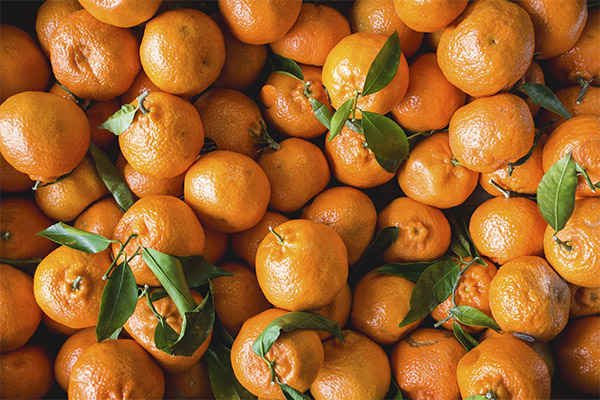
- Color. The peel should be colored in an even shade without any impurities.
- Density of the fruit. A high-quality tangerine must be firm and resilient.
- Integrity. If there is obvious damage on the tangerine peel, discard the purchase of such fruit.
- Rot. The presence of rot and mold indicates improper storage and poor quality fruit.
- Flavor. A quality tangerine will have a bright citrusy smell.
- Variety. Do you like sweet tangerines? Favor Moroccan varieties. Lightly sour? Then pick Turkish tangerines.
To make sure the fruit retains its full nutritional value and doesn't spoil too quickly, store it in the fridge outside the plastic bag.
Can I Freeze?
Tangerines can be frozen to preserve them for a long time. To do this, peel all the fruits, divide them into slices and place them in a single layer on a cutting board. Place the board with the tangerines in the freezer and wait until they are completely frozen. Once fully frozen, the slices can be placed in any convenient container.
The Way to Eat Tangerines
For such a tasty treat as mandarins, not to harm your health, they should be eaten correctly.
How much you can eat per day.
According to physicians, the daily rate of consumption of tangerines for an adult is 250 g. This amount corresponds to 3-4 mandarins of small size. If the daily norm is exceeded, the risk of allergic reactions increases, so you should not neglect the recommendations of experts.
The right to eat at bedtime and on an empty stomach
But it is not recommended to eat tangerines on an empty stomach. In this case, the acids they contain can damage the mucous membranes of the gastrointestinal tract organs and provoke the development of dangerous diseases.
At the same time, a few tangerines, eaten at night, will not harm your health in any way, which is possible due to their low caloric content.
Can I Eat the Peels
Tangerine peels are edible. From it are prepared teas, infusions and decoctions. So we can safely say that you can eat it, but only in limited quantities.
Is it possible to eat mandarin bean
The use of mandarin pips is possible, but only in a very limited quantity -- no more than 5-7 pcs. However, the seeds must be peeled and thoroughly chewed.
What can be made with tangerines: Recipes
Tangerines are delicious fruits, which can be consumed in any form. Housewives often boil citrus compotes, jam, make tangerine smoothies, juice and much more. Try making something using one of the suggested recipes, and you will be able to look at this familiar citrus from another side.
Jam
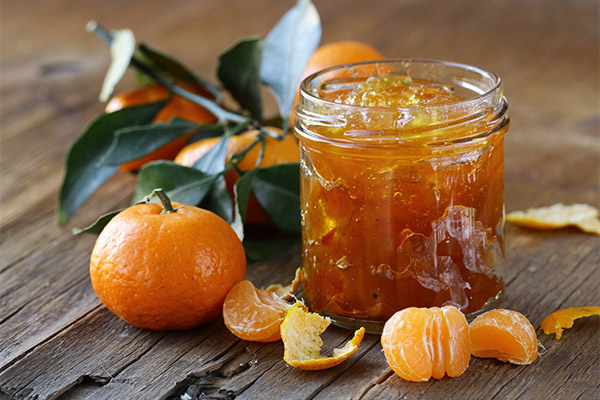
To prepare this treat, you will need the following components:
- 500 g of tangerines.
- 300 grams of granulated sugar.
- 100 ml of water.
Take a double-bottomed enamel saucepan and grate some tangerine peel in it. Pour the specified amount of water into the pot, put it on medium heat. When the water begins to boil, pour into the pot the indicated amount of peeled and sliced tangerines. Boil the fruit for half an hour. After the specified time, add the sugar to the boiled fruit, mix thoroughly and boil for another 20-25 minutes, stirring all the time.
Jam, cooked in this recipe, you can eat immediately or roll up for the winter.
Compote
Another option for processing citrus fruits is to make compote. Before cooking, prepare the following ingredients:
- 150 grams of tangerines.
- 500 ml of water.
- Sugar - to taste.
Place peeled tangerines in a container suitable for boiling, pour water and put on the stove. When the compote boils, remove it from the heat, cover with a lid and leave for 15 minutes. After infusion, strain the drink through a sieve or colander and mash the fruit. Add sugar to taste.
Smoothie
Tangerine smoothie - no less popular drink, which will please not only adults but also children.
To prepare it, you need the following components:
- 1 banana.
- 2 tangerines.
- 5 ml of honey.
- 250 ml of liquid yogurt.
The preparation begins with the processing of fruit. Slice the banana in any convenient way and leave it in the freezer for 20 minutes. After the specified time, grind the banana with a blender, adding to it the specified amount of honey. In the resulting mixture, put the peeled, cut into slices tangerines, and twist once again. Then pour in the yogurt, twist and pour the finished smoothie into tall glasses.
Serve the drink immediately after preparation.
Juice
Tangerine juice will not only be able to please the taste, but also saturate the body with vitamins.
To make it, you need the following ingredients:
- 500 g of tangerines.
- 250 ml of water.
- 200 grams of sugar.
Squeeze the juice from the peeled tangerines with a juicer and filter it through a fine sieve. When you have done this, make a sugar syrup from the above mentioned amount of water and sugar, mix it with the juice and bring the drink to the boil.
Tangerine juice can be drunk immediately after it has cooled, served slightly chilled.
Wine
Tangerine wine will be a real decoration of the holiday table and will be able to surprise guests. For its preparation, the following ingredients are needed:
- 5 kg of tangerines.
- 150 grams of sugar per liter of juice.
- 35 ml of water per liter of juice.
- Wine yeast.
Preparation:
- Pass the peeled tangerines through a juicer.
- Pour the juice into a large jar.
- Add to it the remaining pulp, water, sugar (50 g per 1 liter), wine yeast and mix thoroughly.
- Put the preparation in a dark place for 3 days.
- After that time, strain the blank and squeeze the pulp well.
- Add sugar (25 g per 1 liter), mix thoroughly and set the sonic.
- Leave the blank for another 3 days.
- After this period of time add sugar at a rate of 25 g per 1 liter.
- After 4 days add the rest of the sugar.
- The wine will ferment for 30 to 50 days. Strain the wine when it is over.
- Keep the young wine for another six months. After that, you can pour it into small bottles and store it in a cool place for no more than 3 years.
Candied fruit
Tangerine candied fruits are an excellent substitute for the usual sweets, because this delicacy is not only sweet, but also very useful.
To prepare candied fruit at home, you will need the following components:
- 500 grams of tangerines.
- 1 cup granulated sugar.
- A pinch of citric acid.
- Half a teaspoon of salt.
To make candied fruit you need only citrus peel. Rinse it under running water, put it in an enamel bowl of suitable size, pour 1 liter of purified water and bring to a boil. Boil the peels for no more than 10 minutes, then change the water to new water. Add the specified amount of salt to the peels and simmer again. After boiling again, drain the water and cut the peels into small pieces. Place them in water with sugar, the volume of which should be 500 ml. At this stage, boil the peels for about 60 minutes. Before finishing boiling, add citric acid to the peels.
The last stage involves drying the candied fruits. It takes several hours. Spread the candied fruit in a thin layer on a baking tray and put it in a warm place. The candied fruit can be eaten after it has dried.
Can we give tangerines to pets?
Tangerines can also be given to pets. However, it is worth considering the fact that the acids they contain are a strong irritant to the mucous membranes of the gastrointestinal tract of cats and dogs. Therefore, if you give a four-legged friend such a treat, then in strictly limited quantities - no more than 1 slice per day.
Interesting facts about tangerines
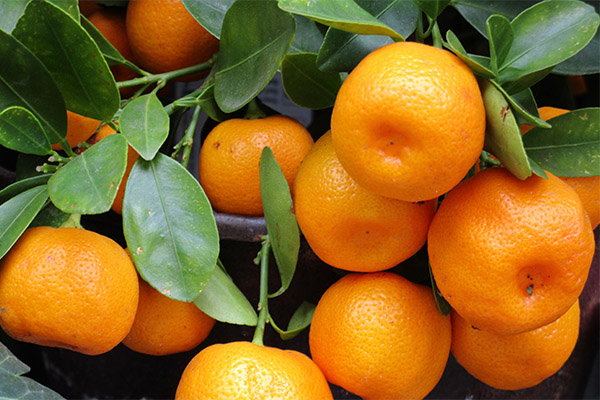
What a tangerine is, every modern child knows. But only a few know that this fruit:
- Is considered a symbol of prosperity and longevity;
- It grows wild only in China;
- It also grows in the Russian Federation;
- It grows on evergreen trees;
- ripens quite a long time - from 6 to 8 months;
- was introduced into the Soviet Union only in 1963;
- can lift your spirits;
- does not contain nitrates.
Including mandarins in the daily diet, do not forget that their amount should be strictly limited. Otherwise, the risk of allergic reactions and other undesirable consequences increases to critical levels.
«Important: All information on this site is provided for informational purposes only information on this site is provided solely for educational purposes. Consult a health care professional before applying any recommendations. should be consulted with a health care professional before any of the recommendations are used. Neither the editors nor the authors shall be liable for any possible harm caused by materials."

